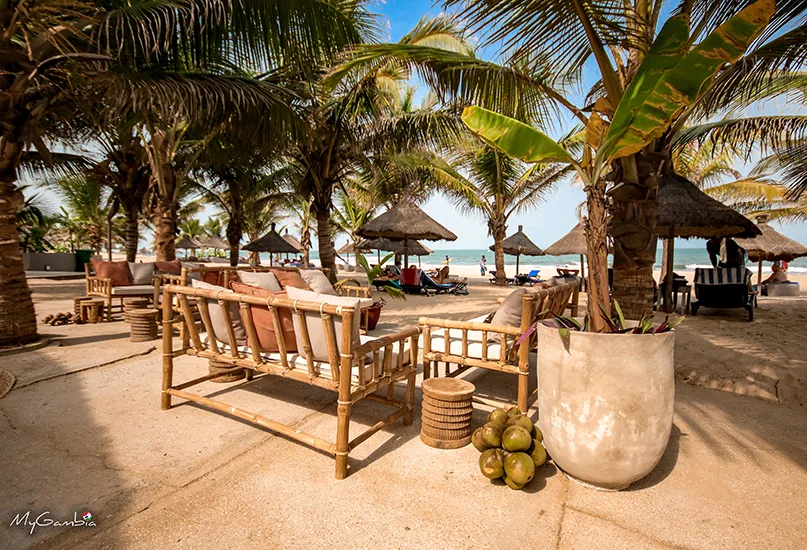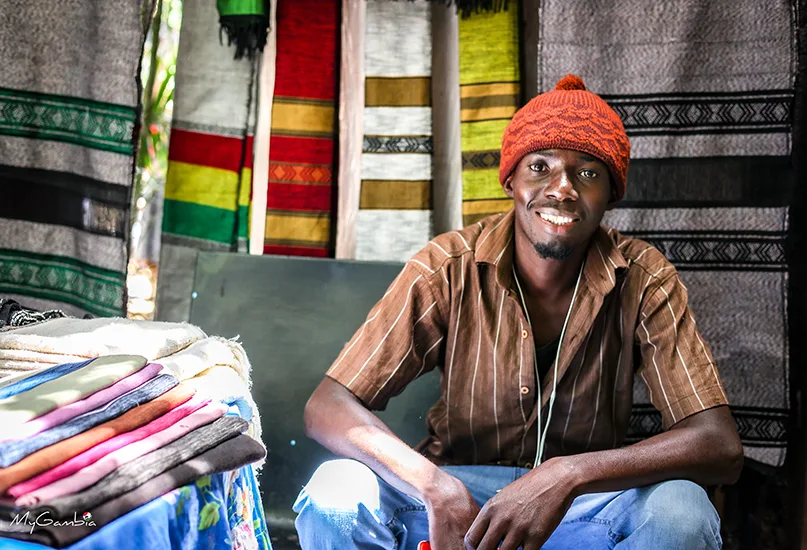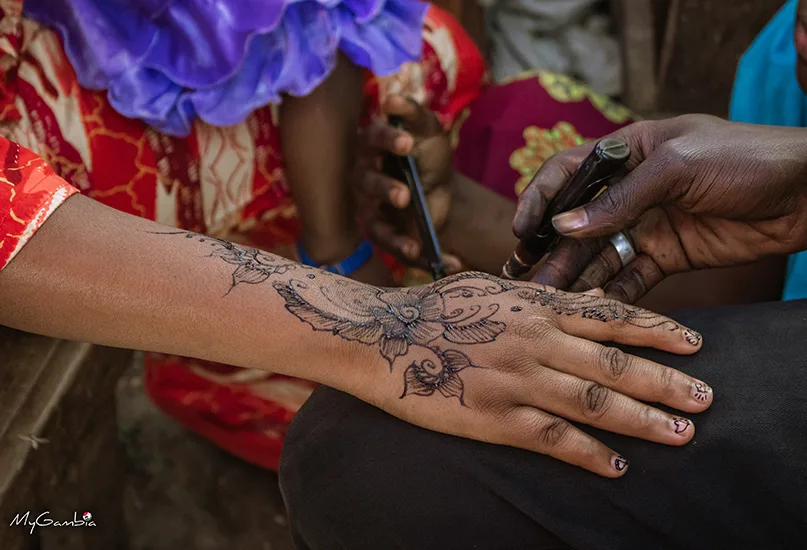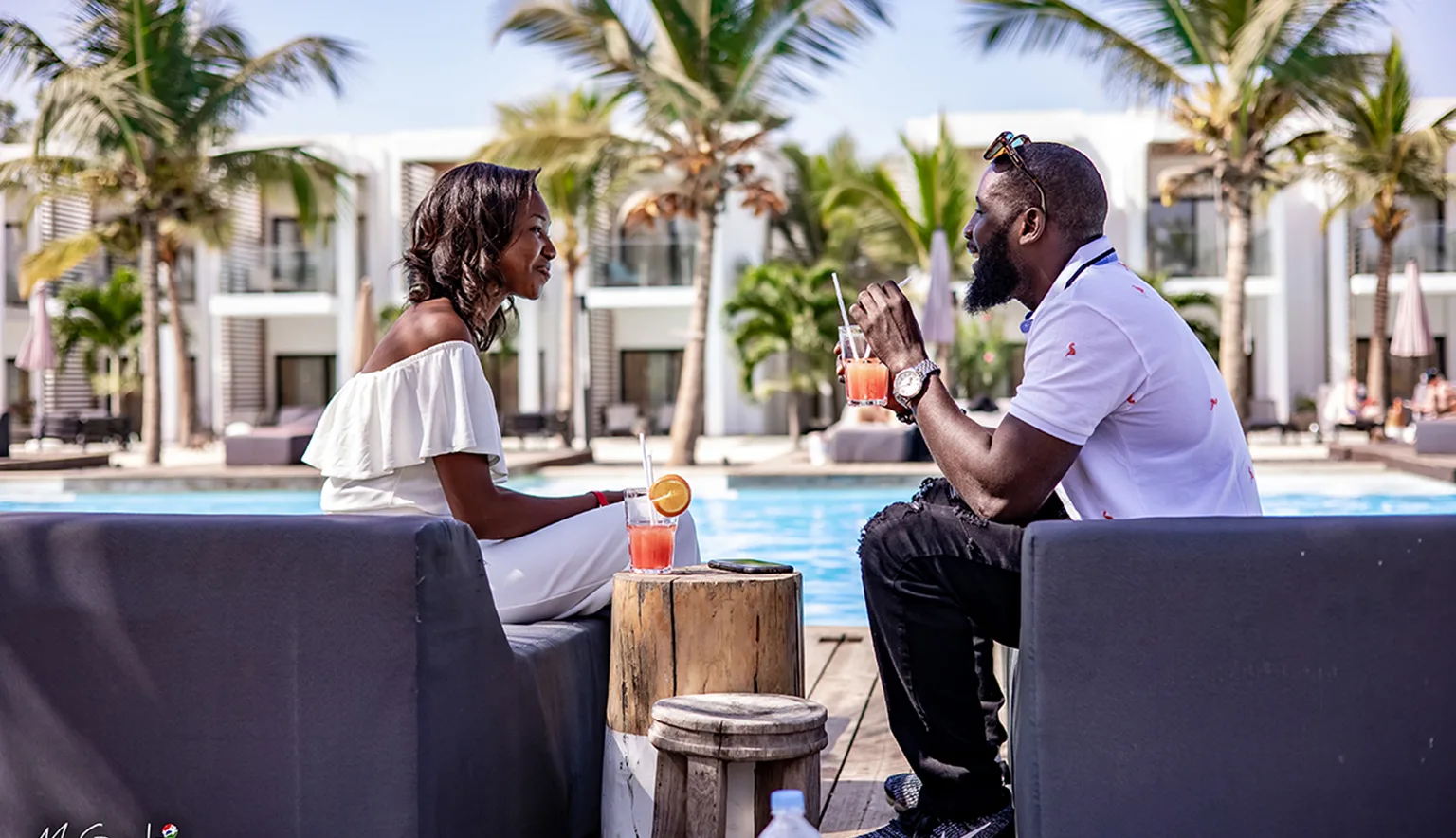Committed to representing the interests of The Gambia’s vast hotel sector, The Gambia Hotel Association coordinates with key stakeholders and advocates on behalf of its members to government and international bodies. Hyat Blell, Chairwoman, tells us how the association unifies the sector and provides a national focal point.
Can you talk us through the origins of the Gambia Hotel Association and its initial vision?
Hayat Blell, Chairwoman (HB): The Gambia Hotel Association (GHA) was established in 1978 in response to a shared industry concern. At the time, there was a sudden increase in the price of Julbrew, one of the country’s locally brewed beer brands. It became clear that hotels needed a collective voice to advocate on their behalf.
The initiative was spearheaded by Mr Pedro, the then Manager of Sunwing Hotel, which is now known as Sunbeach Hotel and Resort. The additional founding members included Palm Grove Hotel, Atlantic Hotel, and Adonis Hotel, with Fajara All Inclusive Hotel joining shortly afterwards. Robert Madi, affectionately known as Bobby, was appointed as the association’s first Chairman.
Originally, GHA’s main focus was advocacy, representing the interests of hoteliers in discussions with government and key industry stakeholders. As the tourism industry evolved, so did GHA. It took on a wider role in promoting The Gambia as a destination, partnering with the Ministry of Tourism and Culture and the Gambia Tourism Board office in the UK to support marketing efforts and enhance the country’s visibility abroad.
Over the years, the association has grown in both membership and impact, expanding from corporate marketing to capacity building. Still, our core purpose remains the same – to serve as a strong, unified voice for the hotel sector in The Gambia.
How does the association act as a voice for Gambian hotels?
HB: The GHA plays a key role as the unified voice of the country’s hotel industry. We currently represent a strong and structured network of over 45 member establishments, including almost all the major hotels. What sets us apart is we are the only dedicated body specifically representing hotels in national industry matters.
We have a fully operational Secretariat based at Djembe Beach Resort staffed by permanent personnel who provide administrative and technical support to our members. Through the active involvement of our Executive Committee and Secretariat, we participate in high-level stakeholder consultations, contribute to national policy dialogues, and serve on various boards and committees that directly impact the tourism and hospitality sector.
This direct engagement ensures that the views and concerns of our members are taken into account in decisions that affect the industry. Whether it’s regulatory issues, investment incentives, standards, or workforce development, the GHA stands as a consistent and credible advocate for hotel operators across The Gambia.
“Whether it’s regulatory issues, investment incentives, standards, or workforce development, the GHA stands as a consistent and credible advocate for hotel operators across The Gambia”
Hayat Blell, Chairwoman, Gambia Hotel Association

What tools do you use to market The Gambia as a top tourist destination in Africa?
HB: Whilst GHA is not a marketing agency per se, we play an active and strategic role in promoting The Gambia as a desirable tourist destination. We work closely with both local and international travel partners and consultants to align with and influence national marketing strategies and policies.
GHA also frequently participates in both global and regional tourism fairs and travel exhibitions, where we engage directly with tour operators, travel agents, and media to highlight the country’s unique offerings.
We also facilitate familiarisation trips for travel writers, bloggers, and international tour operators, giving them first-hand experience of The Gambia and the quality of our hotel products.
To further support destination branding, we create marketing flyers and brochures and maintain active social media accounts that spotlight The Gambia’s tourism offerings, member hotels, and the incredible experiences visitors can expect.
Additionally, we contribute to destination branding by encouraging consistently high standards across our member properties. We believe that the best marketing comes from satisfied guests, so we focus on ensuring every visitor enjoys the warmth, hospitality, and distinct charm The Gambia is known for. Our ultimate goal is to turn every guest into a passionate ambassador for the country.
In your opinion, what differentiates The Gambia from other travel destinations in mainland Africa?
HB: What truly sets The Gambia apart is its unique combination of accessibility, warmth, intimacy, and safety. Despite being the smallest country on the continent, The Gambia offers a rich diversity of experiences, from pristine beaches along the Atlantic Ocean – all within a compact and easily navigable distance – to its vibrant cultural heritage. The Gambia is also known for its peaceful and secure environment, providing visitors with a sense of tranquillity that makes it an ideal destination for travellers seeking a worry-free experience.
One of the most distinctive features of The Gambia is its unparalleled hospitality. Gambians are known for their friendliness, welcoming spirit, and deep sense of community, which make visitors feel like they are part of the family from the moment they arrive. This warm and genuine approach to service is something you won’t find anywhere else.
Moreover, The Gambia has a remarkable connection to nature, with the Gambia River winding through the country and offering unique river cruises and wildlife experiences. The diverse landscapes, from lush wetlands to serene beaches, make it an ideal destination for both relaxation and a little adventure.
Finally, The Gambia has the advantage of being a culturally rich destination with deep roots in African traditions, yet it remains a safe and relatively undiscovered gem compared to other more widely known countries on the continent. This mix of cultural authenticity, natural beauty, and hospitality makes The Gambia a truly special destination.

How can travellers best enjoy the cultural authenticity of the country?
HB: Travellers should immerse themselves in The Gambia’s vibrant traditions, rich history, and everyday life. Here are some of the most meaningful ways to do so:
- Engage with the local people – At the heart of The Gambia lies its people, renowned for their warmth and hospitality. Engaging with locals through conversation, learning traditional crafts, or attending cultural events and festivals offers genuine insight into the values and customs that shape daily life.
- Visit rural Gambia – Whilst the coastal resorts provide comfort and convenience, the soul of The Gambia lies in its rural villages. Exploring these regions allows visitors to witness traditional lifestyles, interact with farmers, observe local cooking methods, and even participate in ceremonies. The slower pace and natural beauty provide the perfect backdrop for cultural immersion.
- Discover cultural landmarks and museums – The Gambia has a compelling history, with sites like Kunta Kinteh Island (formerly James Island) and the National Museum of The Gambia offering a deeper understanding of the country’s heritage, particularly its role in the transatlantic slave trade and journey to independence.
- Savour traditional cuisine and indigenous fruits – Food is at the heart of Gambian culture, and sampling local dishes such as benachin (a one-pot rice dish cooked in a rich tomato-based sauce) and domoda (a savoury groundnut stew) offer a true taste of local flavours. For a sweet touch, travellers should try fruits like kabba (a tangy, dark-shelled fruit with sticky sweet pulp), soursop (a small, plum-like fruit with a slightly tart bite), and baobab (used in juices and snacks, known for its tangy, citrusy taste and health benefits), each bursting with flavour and cultural significance.
By embracing the culture of The Gambia, whether through interactions with locals or visiting traditional villages and events, travellers can gain a deeper appreciation for the country’s rich cultural tapestry.
“By embracing the culture of The Gambia, whether through interactions with locals or visiting traditional villages and events, travellers can gain a deeper appreciation for the country’s rich cultural tapestry”
Hayat Blell, Chairwoman, Gambia Hotel Association
What are some of the country’s most unique landmarks?
HB: The Gambia is home to several unique landmarks that truly capture the essence of the country:
- Kunta Kinteh Island – A UNESCO World Heritage Site, Kunta Kinteh Island is an important historical landmark tied to The Gambia’s role in the transatlantic slave trade. It is famously associated with the book ‘Roots’ by Alex Haley, as the island is believed to be the place from which Kunta Kinte, the central character and Haley’s ancestor, was captured and taken into slavery.
- Jufureh – Located near Kunta Kinteh Island, Jufureh is a significant cultural site. The village is home to a museum that tells the story of The Gambia’s history and its role in the slave trade, as well as the legacy of Kunta Kinteh.
- Kachikally Crocodile Pool – Located in Bakau, just 20 minutes away by car from the main tourist areas, Kachikally Crocodile Pool is one of three sacred crocodile pools in The Gambia where fertility rituals are still practised. The pool is home to an estimated 80 crocodiles that roam freely and can be approached and touched by visitors, making it a unique and memorable experience. The pool is deeply rooted in local culture and spiritual significance, especially for women seeking fertility. It is believed that some crocodiles have healing powers, and many women visit with hopes of conceiving. Legend has it that amongst the crocodiles, there is an albino crocodile named Charlie who is said to possess special powers. According to local folklore, anyone who meets Charlie will see their wish come true – it’s all part of the magical belief surrounding this sacred site.
- The Stone Circles of Senegambia – Also known as the Wassu Stone Circles, these remarkable megalithic structures in the Central River region are part of the largest concentration of stone circles found anywhere in the world. Often compared to Stonehenge, the origins of the stone circles remain a mystery. Scholars suggest they may have been burial sites, ceremonial grounds linked to sun worship or, for those who like a bit of fun speculation, aliens! Whatever you believe, the site offers a fascinating glimpse into ancient West African heritage and is a must-see for archaeology and history lovers alike.
- The Gambia River – One of the country’s most notable natural landmarks, it provides scenic boat trips that allow travellers to explore the country’s rich wildlife and diverse ecosystems. A cruise along the river is a unique way to witness the rural landscape and local communities. The River Gambia is also tied to the Ninki Nanka legend as the mythical creature is said to live in the depths of the water. The legend adds an aura of mystery and intrigue to the already captivating waterway.
- The Chimpanzee Rehabilitation Project – Deep in the River Gambia National Park lies one of the most extraordinary conservation projects in West Africa. Featured in ‘Lucy the Human Chimp’, the documentary details the story of Lucy, a chimp raised as a human in the US, and her journey back to nature in The Gambia. Today, more than 100 chimps roam freely across the islands – not in cages, but in the wild. Visitors can’t set foot on the islands as they’re protected, but boat safaris bring them close enough to witness the chimps’ behaviour, along with hippos, crocodiles, and vibrant birdlife.
- Pristine beaches – The Gambia is known for its beautiful, unspoiled sandy beaches along the Atlantic coast. Visitors can enjoy relaxing on the sun-soaked shores of places like Kololi, Kotu, and Sanyang Beach. These pristine beaches offer opportunities for sunbathing, water sports, and enjoying the peaceful ocean views.
- The people – Whilst not a traditional landmark, the people of The Gambia are one of the country’s most unique and memorable features. Known for their warmth, friendliness, and hospitality, Gambians greet visitors with open arms and are always ready to share their culture and history.

What current trends are transforming the tourism industry in The Gambia, and how are you utilising them?
HB: The tourism industry in The Gambia is undergoing an exciting transformation shaped by global trends and local innovation. Key developments include the rise of ecotourism, digitalisation, and an increasing demand for cultural and wellness-focused travel.
Ecotourism is gaining momentum as travellers seek sustainable, nature-based experiences. With its diverse ecosystems and pristine landscapes, The Gambia is well-positioned to lead in this space. The GHA is working closely with its members to promote eco-friendly practices, including the formation of ‘green teams’ within hotels to drive sustainability from within. These teams help implement initiatives such as energy efficiency, waste reduction, and nature-based experiences like birdwatching, river cruises, and visits to national parks.
Digitalisation is another major shift. With travellers relying heavily on online platforms for research and bookings, the GHA is actively supporting its members in improving their digital presence. This includes offering training for staff in our member hotels in e-marketing, modernising booking systems, leveraging social media to showcase Gambian hospitality, and adapting to evolving traveller expectations in the post-COVID-19 pandemic era.
Cultural tourism also continues to grow as visitors look for more meaningful, immersive experiences. The Gambia offers a rich cultural tapestry, from historic sites like Kunta Kinteh Island and Jufureh to its vibrant music, dance, and craft traditions. The GHA promotes these experiences and encourages tourism that benefits and involves local communities.
Wellness tourism is additionally on the rise. Many of our hotels are responding by offering yoga sessions and spa and wellness retreats, allowing guests to unwind and rejuvenate in peaceful, natural surroundings.
In response to these evolving trends, the GHA remains committed to supporting its members through training, advocacy, and strategic partnerships, ensuring The Gambia continues to thrive as a destination for sustainable, cultural, and wellness tourism.
What challenges does The Gambia’s tourism industry face, and how are you working to overcome them?
HB: Whilst The Gambia’s tourism sector continues to grow and evolve, we face several structural challenges that require strategic attention to ensure long-term sustainability and competitiveness.
- Seasonality – Tourism in The Gambia remains highly seasonal, with peak visitation occurring between November and April. This leads to reduced business activity and employment opportunities during the off-season, especially for small to medium-sized enterprises (SMEs). To address this, the GHA is working to develop year-round tourism offerings, such as festivals, wellness retreats, and niche experiences like birdwatching, sports tourism, and business conferencing.
- Air access – Limited year-round flight connectivity poses a significant hurdle to consistent tourist arrivals. Whilst seasonal charters bring in many visitors, the lack of regular, affordable international flights restricts our reach to emerging markets. The GHA is actively engaging with government and airline partners to improve air access, diversify routes, and encourage carriers to consider The Gambia as a strategic hub for West Africa.
- Infrastructure and service gaps – To fully realise its potential, The Gambia must continue investing in critical infrastructure, such as roads, waste management, and utilities to enhance the visitor experience. As GHA, we are collaborating with both public and private stakeholders to advocate for improvements that benefit not only tourists but local communities as well.
- Regional competition – With more destinations across Africa entering the market, The Gambia faces increasing competition. To stay ahead, we must continue to leverage our unique assets, such as our welcoming culture, rich history, and unspoiled nature, whilst continuously upgrading our products and services. Innovation, training, and destination branding remain key priorities for the GHA in order to keep The Gambia relevant and attractive to modern travellers.

Are you optimistic about the future of the tourism industry in The Gambia?
HB: Despite ongoing challenges, we remain highly optimistic about the future of tourism in The Gambia. With targeted investment, strong partnerships, and a unified vision amongst stakeholders, the sector is well-positioned for sustainable growth.
The upcoming five-year national tourism marketing strategy and action plan – developed with support from the World Bank – marks a major step forward. If implemented effectively, it has the potential to address existing challenges, enhance destination visibility, and attract a broader, more diverse range of visitors.
What gives us even greater confidence is the level of collaboration we’re seeing; international development partners are providing critical support whilst local stakeholders are actively engaging in efforts to improve standards and expand offerings. This shared commitment lays a solid foundation for a more vibrant, competitive, and resilient tourism industry in the years ahead.




























